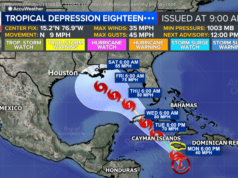Betty LaBombard, a longtime waitress at Woolworth’s, celebrated her 95th birthday March 1 at the Vermont nursing home where she had been a fixture for …
Betty LaBombard, a longtime waitress at Woolworth’s, celebrated her 95th birthday March 1 at the Vermont nursing home where she had been a fixture for eight years, often perched in her wheelchair near the fourth-floor nurses’ station. Her niece brought her a chocolate cupcake.
Down the hall, Frances McKenna, a social force on their floor, looked forward to getting her hair done in the home’s salon. One flight up, Joseph Metallo, who had moderate dementia, chatted with his son, Mike, while making a construction paper lamb for Easter. He wore his new glasses and kept his large-print Bible nearby.
It was one of the last routine days at the Burlington Health & Rehab Center, before anyone knew just how badly the coronavirus would savage nursing homes, killing more than 44,000 residents and staff members nationwide. When the Burlington home shut its doors to the outside March 12, only two people in Vermont had tested positive. But it was too late. The virus was already inside.
“I feel like I murdered him by putting him in there,” Mike Metallo said of his father.
Even though the number of new deaths from the coronavirus has been decreasing, the legacy of the pandemic in this country is already bound up in nursing homes. More than 40% of the coronavirus fatalities in the U. S. have been tied to nursing homes and long-term care facilities. After such a toll, the nation faces a reckoning over its care of the elderly, regardless of what happens in coming months.
The senior Metallo,89, became not just the first coronavirus case for the Burlington center but the first for Genesis HealthCare, a for-profit chain with a spotty record and almost 400 nursing homes and long-term care facilities in 25 states.
The New York Times tracked the outbreak at Burlington, following who lived and who died, interviewing family members and listening to their conference calls with the facility’s administrators. What emerged is an intimate account of how the virus moved through a nursing home, how operators struggled to subdue it and how residents’ families split over their performance and the outcome.
Burlington Health, ranked by regulators last year as one of the state’s worst nursing homes, did some things right: It eventually tested all residents and staff members and isolated positive cases. It moved out a floor of healthy patients. Administrators updated families on Zoom conference calls, initially twice a day, an unusual level of transparency. A nearby nursing home, rated one of the state’s better facilities, had a higher death toll.
Still,11 Burlington residents died after contracting COVID-19, the disease caused by the virus. Relatives said they saw lapses in the home’s infection control practices. The facility was pilloried in the press. In this lakeside community of about 43,000, people shouted “Murderers!” as they drove past. Families of three residents who died said they hoped to sue.
“COVID didn’t kill her; neglect did,” said John Reynolds, the son-in-law of a resident who had the disease yet died from a urinary tract infection that spread throughout her body. He said the family had told the home repeatedly about her history of such infections. He and his wife have since talked to state investigators about what happened, he said.
Dr. Richard Feifer, chief medical officer at Genesis, said the company had met or exceeded guidelines from the Centers for Disease Control and Prevention in responding to the coronavirus. But those guidelines, he contended, were slow to catch up with what was happening on the ground.
There usually weren’t enough tests available; when there were tests, getting results took up to 11 days, Feifer said. Until late March, no one realized how many asymptomatic people could be spreading the virus.
Early on, Genesis decided any home with a positive case would hold regular calls with family members. In many other facilities, relatives have struggled to get even basic information.
The Burlington calls started March 18, two days after Metallo’s diagnosis, and echoed national debates. When should coronavirus-positive staff be allowed to work? Why do some people with no symptoms test positive for weeks? How long are they contagious?
“It is frustrating because we would love definitive answers,” Amanda Nagell, the home’s nursing director, told families April 15. “We just don’t know. And that’s the scary part.”
Around town, the Burlington center, bought by Genesis in 2016, was known as the nursing home of last resort.
Nationally, the for-profit chain had a reputation for cutting costs and maximizing profits. In 2017, Genesis agreed to pay the federal government almost $54 million, in part for providing “grossly substandard nursing home care” at several homes, none in Vermont.
Home
United States
USA — Events A Vermont nursing home’s 64-Day COVID siege: ‘They’re all going to die’






